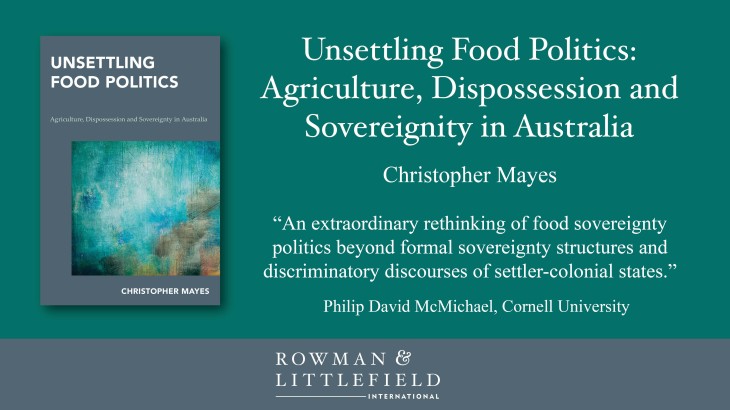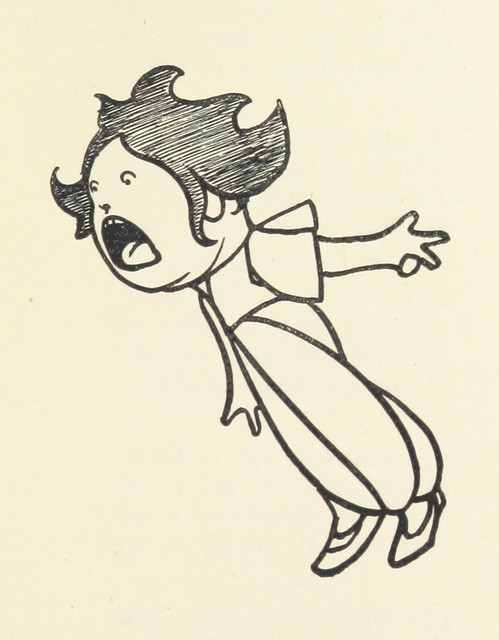This article first appeared on the ABC Religion & Ethics website, 12 Oct 2016
In 1825 the French gastronome Jean Anthelme Brillat-Savarin declared, “Tell me what you eat and I will tell you what you are.” By this he seemed to mean that he could tell something about a person’s character and class by what they eat.
Forty years later, Ludwig Feuerbach echoed Brillat-Savarin with the pithier, “You are what you eat.” Feuerbach’s intent however was to highlight the materiality of what it is to be a human being – you are material like what you eat is material.
His phrase has since developed a life of its own. A quick Google search reveals multiple documentaries, hundreds of books and thousands of articles and blogs taking “You are what you eat” for their title. Most of these are very prescriptive. You are fat, unhealthy, diseased or unhappy because you eat too much of one thing and not enough of the other.
While varying in rigour and sophistication, proponents of the “you are what you eat” mantra express the sentiment that there is a connection between the food we eat and some ill-defined moral, aesthetic and psychosocial reality.
This sentiment, however, did not originate in the nineteenth century with Brillat-Savarin or Feuerbach. They are part of a much longer tradition that extends back to the food practices of almost all ancient peoples.
Broadly speaking, in the ancient world food was deeply entwined with social, political and religious life. Often this was expressed terms of purity and impurity, which in turn would indicate who was inside and outside of the community. A well known, although immensely complex, example is the Mosaic dietary laws as recorded in Leviticus and Deuteronomy. The dietary laws ordered the daily, political and ceremonial life of the ancient Hebrews and set them apart from surrounding peoples. What you could eat, whom you could eat with and how the food was prepared were governed by these rules.
It was in the context of the tightening of these laws that Jesus sought to break the link between diet and religious-moral status – “it is not what goes into the mouth that defiles a person, but what comes out of the mouth; this defiles a person” (Matthew 15:11). A lot of ink has been spilt over these words. Generally speaking, Jesus’s point is that assiduous observance of the Mosaic dietary law does not create a pure and holy person. It is not what a person eats, but the orientation of their heart and its alignment with the will of God that makes them clean.
The ancient Greeks were also concerned about the relationship between food and status within the polis. This was not in the binary of pure or impure as practiced by the ancient Hebrews, but was seen in terms of prudence or temperance. As Hub Zwart has shown, Greek dietetics was a way of life through which an individual would subject themselves to a regimen of self-discipline and self-governance to develop an eating habit that is rationally ordered. Food diaries and other self-inspection devices were used for these purposes.
To stray from a dietetic regimen would not necessarily indicate that one was unclean, but that like an animal they could not control their appetite. And if they couldn’t govern their appetite, then they probably couldn’t govern more significant things such as the household or the city.
Greek approaches to food and sex were similar in this regard. The example of Nicocles the ruler of Cyprus illustrates this point. According to Isocrates, Nicocles explains his conjugal fidelity in saying, “I am the king, and because as somebody who commands others, who rules others, I have to show that I am able to rule myself.” Nicocles could have sex with whomever he wished, but if he wished to rule others and the city with glory and authority then he had to rule himself first. The Greek free man was at liberty to seek culinary and sexual pleasures, however if he sought to cultivate an existence characterized by self-mastery and beauty, then he recognized the particular rules of conduct that were constitutive of that subjectivity.
In more recent times, these ways of thinking about the relationship between food and moral character has been transformed. Nutrition science has narrowed the frame so that the effect of food is limited to physiological health. The social, moral and religious understandings of food give way to understandings provided by chemistry and microbiology.
A shift in ethical theory also contributed to the transformation in understanding of the ethical relevance of food. Rather than cultivating an ethical character through certain practices, the concern is over the consequence of choices, duty to others and the capacity to act as an autonomous individual.
These transformations of food play out in debates about the ethics of consumption and the right to know what is in our food. Much of the focus on ethical consumption is on duties or the consequences of certain choices for others. While I have been sceptical about the extent to which ethical consumption can solve global problems such as slavery or climate change, I do think the retrieval of ancient practices of care of the self is an important way for developing an ethical relationship to food.
Some of these resources for this retrieval can be found in Michel Foucault’s work on the “care of the self.”
In his final years, Foucault directed his attention toward Greco-Roman ethics and the constitution of the ethical subject around the use of pleasure. In the books The Use of Pleasure and The Care of the Self, as well as numerous lectures, seminars and interviews, Foucault investigates the constitution of the subject through specific techniques, practices and knowledges of the self.
Ethics in this context does not indicate principle-based normative action that, if followed, is considered morally praiseworthy. Rather Foucault refers to ethics as a practice that forms the subject, guides action and mediates the subject’s relation to oneself, others and the world.
In his analysis of the constitution of the subject through an ethics understood as practice, Foucault isolates four aspects in the process of subjectification: the ethical substance, the mode of subjection, the ascetic work, and the telos of the ethical subject. The relationship among the four aspects is not linear but dynamic and interconnected.
Using the Greeks as an example, Foucault suggests that the “ethical substance” was pleasure, the “mode of subjectification” was politico-aesthetic choice, the ascetic form or ethical work was a variety of the techniques used to govern particular relations around pleasure and, finally, the telos or goal was the mastery of oneself. While the content of these aspects (for instance, concern over pleasure) may no longer be relevant, this orientation towards ethical cultivation and care of the self may still be relevant.
The philosopher Paul Thompson uses Foucault’s approach to argue for a revitalisation of agrarian virtue in relation food practices. In his book The Agrarian Vision, Thompson embraces the idea of agrarian virtue not as an ethics learned from books or philosophy classes, but as an ethics that is lived and demonstrated in the character of the person. “Farming itself,” writes Thompson, “was thought to form the character of rural people.”
For example, in cultivating the land individuals develop an awareness of the limits and conditions of life, which in turn encourages a humble and patient character. By encountering the fragile temporality of life, a person views food, health, prosperity and land not as calculable commodities but as gifts. It is argued that by humbly and respectfully relating to the land as a gift, agrarian virtues of self-reliance, interdependence, sustainability and community are cultivated.
Of course, it could be argued that this is all very nice, but as less than 2% of the Australian population actually farms these ideas are quite irrelevant. Thompson argues that even if the social and material conditions of agrarianism are not currently present to produce virtue, people “can come to understanding of virtue when such a society is taken as a model.” Thompson suggests that these virtues can be cultivated in a “vicarious manner.” Although the actual social and material conditions of agrarian life would make it easier to cultivate agrarian virtues, Thompson suggests that surrogates such as poetry, literature, farm experiences and farmers’ markets make it possible to cultivate virtues.
Thompson’s cultivation of agrarian virtue is just one example of an attempt to renew thinking about the relation between food and the self. There are many others. However, these approaches are not without their problems.
For starters they can be terribly bourgeois. As the historian Thomas Govan wrote in the 1960s, it is the teachers, writers, philosophers and poets who propagate this nostalgic notion of virtuous food practices – those “who milked no cows, shovelled no manure, and picked no cotton or peas.” Writing in the same period, Richard Hofstadter suggested that the “more commercial society became … the more reason it found to cling in imagination to the noncommercial agrarian values.”
The mid-twentieth century nostalgia for non-commercial values has reappeared in the food practices of urban-dwellers in first decades of the twenty-first century. Farmers’ markets, homesteading, community-supported agriculture, slow-food, or dumpster diving are all old yet new food practice that some people are adopting.
Echoing Govan and Hofstadter, critics today have pointed out the way an overwhelming sense of these virtues has blinded some advocates to past and present gendered, class and race inequalities. I have discussed aspects these at greater length elsewhere.
However, a related problem is when the benefits of intentional food practices are overstated. Growing tomatoes on your windowsill may be a useful practice for cultivating a particular attitude towards food and the environment, but it is not going to stop climate change or revolutionise the food system. These limitations, however, should not mean that we simply disregard any value in thinking and acting differently in the way we acquire, prepare and consume food.
It isn’t surprising that the critiques of romantic nostalgia and bourgeois individualism aimed at alternative food are also levelled at Foucault’s idea on care of the self. Lois McNay, for examples, contends that Foucault’s care of the self focuses too heavily on the individual and “amounts to an amoral project for privileged minorities.”
These are important criticisms that cannot be fully dealt with here, except to emphasise that the care and cultivation of the self is not performed in self-imposed isolation or exile. It is in the context of relations with others – an ethics of the self in community.
Likewise, food practices are not performed in isolation, but are social practices that structure ways of relating with others. Food is a central site for relating to oneself and others in material, social and moral registers. The etymology of companion as “bread fellow” or “to break bread with” illustrates the shared ethical practice of food.
There are many examples of the way food is being used to transform individuals and communities, particularly as a means to reconcile differences and dispel fears of the other. For example, an Israeli hummus restaurant is offering a 50% discount to tables seating both Arab and Jewish diners. The Welcome Dinner Project is using a shared meal to connect newly arrived people with more established Australians. The rising interest in Aboriginal foods presents an opportunity for deeper understanding of Aboriginal foodways, which has often been denigrated and dismissed as “primitive.”
The transformative potential of these practices also carries the risk of co-option, either through commercial exploitation or the shallow sentiment of chasing culinary exotica. These practices can also be crushed under the weight of unrealistic expectations. Getting people to share a meal is not going to solve the conflict in Israel and Palestine, eradicate xenophobia, or redress the dispossession of Indigenous Australians. But such practices of the self with others can serve to transform the lives of those sitting at the table.
“You are what you eat” has become hackneyed and calcified with moralistic health messages. Perhaps instead we should start thinking and acting on the idea that “as we eat with others, we become who we are.”




 earch among public health researchers.
earch among public health researchers.



![Image taken from page 855 of '[A series of original Portraits and Caricature Etchings by ... J. Kay; ... with biographical sketches and illustrative anecdotes. [Edited by H. P.]]'](https://farm3.staticflickr.com/2840/11265651245_64e1d072f7_z.jpg)




